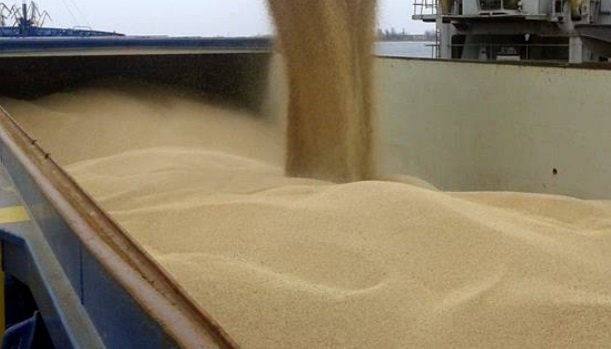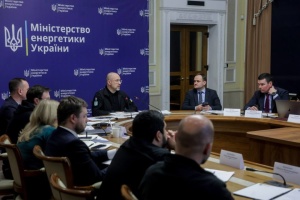
Kyiv stands against EU ban on Ukraine’s grain, calls for market solutions
This was stated by the Minister of Agrarian Policy and Food, Mykola Solskyi, who spoke with the press in Brussels today following an informal working lunch within the EU Council of Ministers on Agriculture and Fisheries, an Ukrinform correspondent reports.
Noting that the delegation had meetings with many ministers and representatives of the European Commission, he noted that Ukraine has outlined its position regarding the ban on the import of Ukrainian agricultural products after June 5, stating that the country is “against” the move, adding that it is not a “good way.”
He said that a few weeks after the introduction of the ban on Ukraine agri-imports by some EU countries, enormous challenges arose with the operation of the Black Sea Grain Initiative, caused by Russia's actions, as a result of which the Ukrainian side could not load ships for 10 days.
Ukraine remains grateful to its Turkish partners and the United Nations, as well as all other partners, for the opportunity to continue the Initiative for the next few months, said Solskyi. At the same time, Ukraine sees that the Russians are closely monitoring the developments, trying to take advantage of them, while Kyiv insists that Moscow must not be allowed to do so.
Answering questions from the Ukrinform correspondent, the minister explained that the existing restrictions on Ukrainian agricultural imports will be in effect at least until June 5, and that it would not be a good idea to extend them. This applies primarily to sunflower seeds, corn, wheat, and rapeseed. The minister recalled that Ukraine actively sold rapeseed to the EU even before the war, so it is difficult to understand why restrictions on its import to EU countries were introduced after the war began. At the same time, Solskyi emphasized that the Ukrainian side is definitely interested in finding a constructive solution to the issue.
"The countries that introduced these restrictions (Poland, Slovakia, Hungary, Bulgaria, and Romania - ed.), they are our partners as much as possible, so we are trying to find the right solutions. We understand this pressure on farmers last year. There are no perfect solutions, but the decision to continue this ban is the worst possible decision, so other options should be sought... The ban will only lead to more problems, as the Russians will try to use it to their advantage to provoke a weakening of European unity. This cannot be allowed. We talk to each other about this as frankly as possible," the Ukrainian minister emphasized.
As reported earlier, the Council of the EU has just approved the extension of the duty-free trade regime between the EU and Ukraine for another year, until June 2024. These regulatory rules enter into force on June 6, 2023.
At the same time, the blockade of the Black Sea ports by the Russian Federation led to a sharp increase in the volume of shipments of Ukrainian grain and other agricultural goods by land, through the "Solidarity Lanes" set up on the borders with neighboring countries, which significantly affected the domestic markets of these countries and sparked protests on the part of local farmers.
On April 28, the European Commission agreed with four EU members neighboring Ukraine - Bulgaria, Hungary, Poland, and Slovakia – a package of measures, which was to be implemented after the mentioned nations cancel their individual restrictions on agricultural imports from Ukraine. This package limits the import to the territory of the mentioned countries, as well as to Romania, of four key products from Ukraine - wheat, corn, rapeseed, and sunflower, although it preserves the possibility of transit of such goods to other EU countries and to the world market.
The said EU countries, which are Ukraine's neighbors, insist on the extension of restrictions on the import of Ukrainian agricultural products after June 5, when the updated regime of duty-free trade between Ukraine and the EU will come into force.




